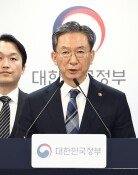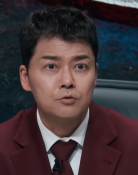Negative campaigning
Lyndon Johnson, the Democratic presidential candidate in 1964, described his Republican rival Barry Goldwater as a man who could potentially use nuclear weapons in the Vietnam War. Negative campaigning put the spotlight on Daisy Girl. A little girl counts petals in a meadow and reaches the number nine, and then a male voice starts counting down a missile launch. Her pupil reflects something flying in the sky and her friends cover the screen. Suddenly, things go black and mushroom clouds begin to grow. This ad was aired just once due to the criticism that it was exaggerated, but it helped Johnson to a landslide victory.
When Park Chung-hee took off his military uniform and stepped up to run for president of South Korea in 1963, Yun Bo-seon, the presidential candidate of the opposition party, questioned Parks ideology and associated him with Hwang Tae-seong, a leading North Korean spy. Park Sang-hee, Park Chung-hees older brother, was a communist and died in a Daegu riot in 1946. Hwang, who was then deputy minister of North Koreas Trade Ministry and an ally of Parks brother, came to the South to meet President Park Chung-hee in person though then North Korean leader Kim Il Sung persuaded him not to. Yun`s mudslinging did not work, as President Park tried to eliminate suspicions over ties with communists from the beginning of his presidency after he seized power in the 1961 military coup.
Negative campaigning is rearing its ugly head again in South Korea. The main opposition Democratic United Party claimed that Park Geun-hye, the presidential candidate of the ruling Saenuri Party, and her relatives have assets worth 1.3 trillion won (1.2 billion U.S. dollars), adding that the figure would rise to 4 trillion won (3.69 billion dollars) if the Jeongsu Scholarship Foundation and Yeungnam Academy are included. Park reported a net worth of 2.1 billion (1.94 million dollars). It makes no sense to count the assets of ones relatives considering that many do not know the wealth of their siblings. Regardless of the claim`s accuracy, the main opposition party apparently intended to harm its rival. If it goes further, it can be considered malicious propaganda.
In the by-election for Seoul mayor last year, supporters of candidate Park Won-soon resorted to damaging mudslinging against his ruling party rival Na Kyung-won, claiming that she once received beauty care costing around 100 million won (92,300 dollars). Once a claim is made even if untrue, it is hard to dispel. Some simply believe it despite explanations, and others believe it partially, saying, Where there`s smoke, there`s fire. Making the people believe a false claim is nothing less than deception, not to mention highlighting a rivals weaknesses. A campaign that highlights ones strengths is the first step toward political reform.
Editorial Writer Song Pyeong-in (pisong@donga.com)







